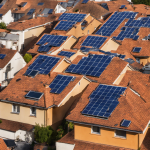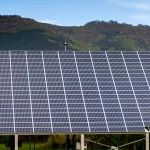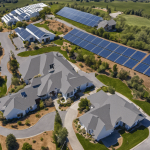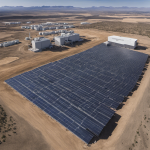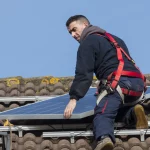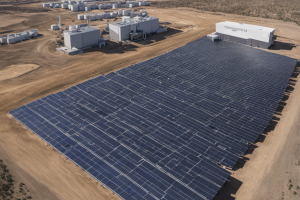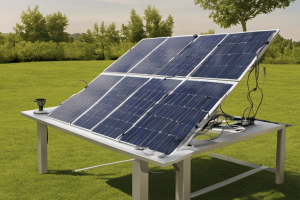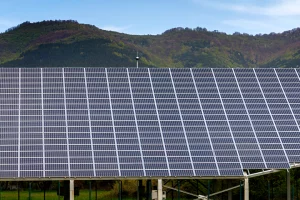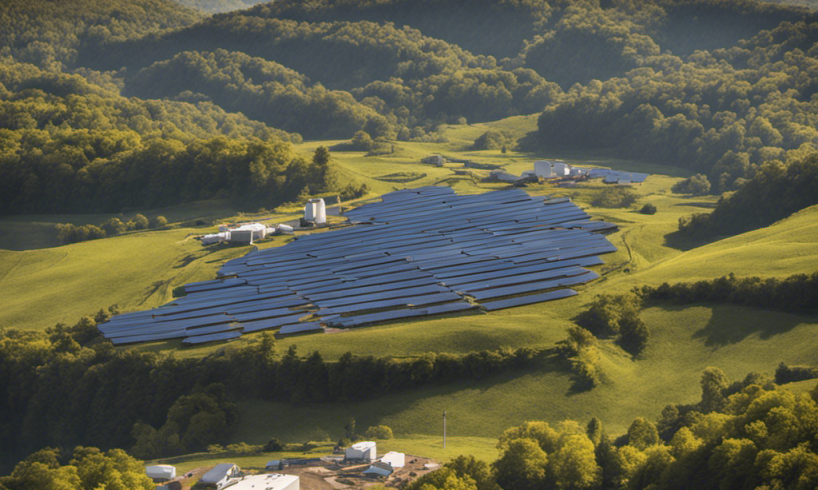
A coalition of businesses, nonprofits, and locals in southwestern Virginia is leading the charge in transitioning from coal to solar energy, creating jobs and economic opportunities in the process.
In the heart of coal country, where the coal industry has long been a dominant force, a quiet revolution is taking place. Southwest Virginia, known for its coal-rich counties, is experiencing a growing support for solar energy. This unexpected shift is being spearheaded by a coalition of businesses, nonprofits, colleges, local governments, and citizens who are working together to promote and adopt clean energy solutions. Through their efforts, solar power is gaining traction, offering hope for a diversified regional economy and a greener future.
The Rise of Solar in Coal-Dependent Communities
Matt McFadden, a local resident and founder of Secure Solar Futures, is at the forefront of the solar energy movement in southwestern Virginia. With the support of the Solar Workgroup of Southwest Virginia, a coalition that brings together experts in various fields, McFadden's company has been able to install solar arrays on schools and other public buildings. The Inflation Reduction Act (IRA) has played a crucial role in making these projects financially viable, providing tax credits for projects in low-income and coal communities. The savings generated from these installations are passed on to customers, making solar energy an attractive option for both environmental and economic reasons.
The Cultural Significance of Coal in Central Appalachia
To understand the significance of the shift towards solar energy in coal-dependent communities, it is necessary to acknowledge the deep cultural ties to the coal industry. Coal mining has been more than just a job; it has shaped entire communities, building towns, schools, and churches. The decline of the coal industry has left these communities devastated, with polluted water, respiratory diseases, and a sense of mistrust towards outsiders. Solar advocates in the region, like Emma Kelly of the Solar Workgroup, emphasize the importance of being locals themselves, gaining the trust of their communities, and demonstrating that solar energy can bring positive change without exploiting the community or the land.
Overcoming Skepticism and Misinformation
One of the challenges faced by solar advocates in coal-dependent communities is overcoming skepticism and misinformation. Decades of exploitation and broken promises have left residents wary of new economic opportunities. Many fear that solar energy will accelerate the loss of coal jobs without providing long-term benefits. Misinformation, often spread by the fossil fuel industry, has also contributed to local skepticism. However, through community outreach and education, solar advocates are slowly changing perceptions and highlighting the tangible benefits of solar energy, such as stabilizing energy costs and creating local job opportunities.
State Policy and Roadblocks
While the Inflation Reduction Act has provided a much-needed boost to solar energy in coal-dependent communities, state policies can still present roadblocks. Historically, Virginia's energy policies have been more favorable to utilities than customers. However, provisions in the Virginia Clean Economy Act have allowed public entities, such as school districts, to enter power purchase agreements with solar installers, enabling them to buy energy from solar arrays without owning them. Despite these positive developments, Governor Glenn Youngkin has expressed a preference for nuclear energy over solar and wind, posing a potential setback for the region's clean energy transition.
Small Victories and Scaling Up
Despite the challenges, solar advocates in coal-dependent communities are celebrating small victories. Projects like the installation of solar arrays on schools have not only saved districts money but also changed perceptions about the feasibility and benefits of solar energy. Hiring locals to install and maintain the solar panels has been instrumental in building trust and showcasing the positive impact of solar energy on the local economy. Through apprenticeship programs and community-focused initiatives, solar advocates are proving that solar energy can provide economic opportunities and a sustainable future for coal-dependent communities. These efforts also highlight the untapped potential for solar adoption in other regions, drawing parallels to successful models in European homes and rooftop solar potential. By emphasizing community involvement and economic revitalization, solar advocates are gradually dispelling myths about the limitations of renewable energy in coal-dependent areas. This approach underscores the idea that a transition to solar is not just an environmental imperative but also a practical and inclusive solution for energy and economic resilience.
The transition from coal to solar energy in coal-dependent communities is not without its challenges. However, the efforts of a dedicated coalition of businesses, nonprofits, and locals in southwestern Virginia are paving the way for a greener and more diversified regional economy. Through education, community outreach, and tangible examples of the benefits of solar energy, skepticism is slowly being replaced with support. As the region embraces solar power, it offers a glimpse of hope for other coal-dependent communities across the country, showing that a transition to clean energy is not only possible but also economically viable and beneficial for all.

James Smith is our editor. He is an accomplished and versatile news writer with over a decade of experience covering a wide range of topics, including politics, business, and real estate. Throughout his career, James has been dedicated to uncovering the truth and presenting unbiased, factual reporting to his audience.


